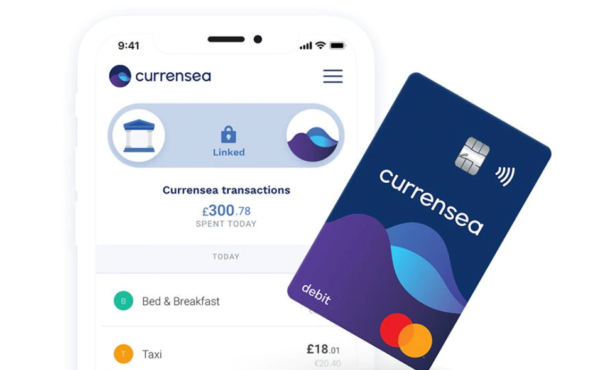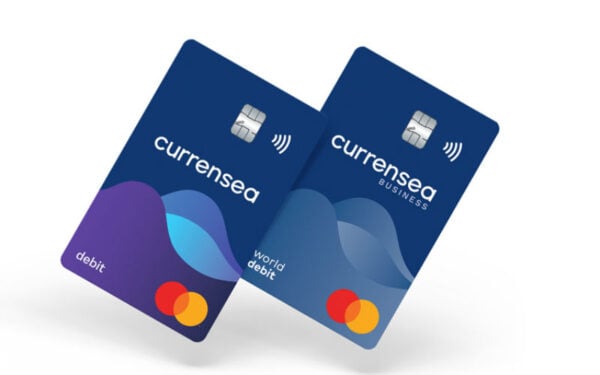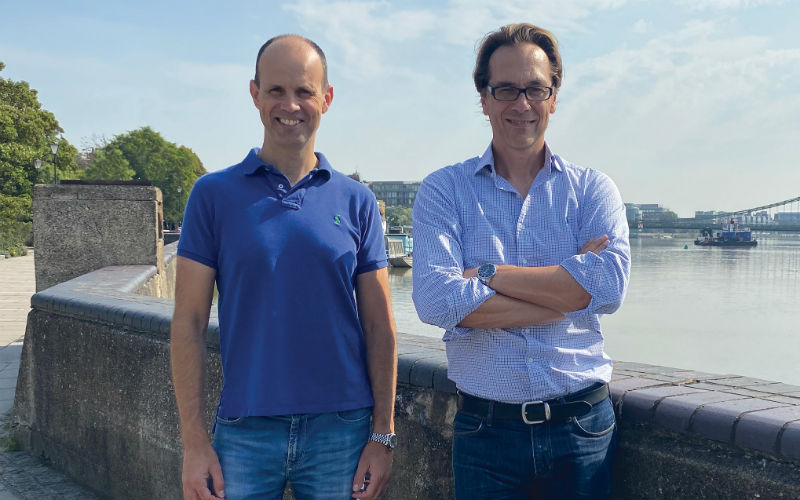As the world’s first underground passenger railway, London’s Tube network was once the envy of the world.
These days it is noisy, overcrowded – or was, pre-COVID-19 – and frequently breaks down. Anyone who has used certain underground networks in other cities, such as in parts of Asia, will acknowledge that the experience there bears little resemblance to the UK capital.
There are, according to Currensea co-founder James Lynn, parallels to be found with technology platforms.
“If you want to go from 5,000 to 10,000, 20,000, 100,000 then 200,000 users, you can’t keep patching over things with ‘sellotape and paper’,” he tells BusinessCloud. “If you do, you just do not have a scalable path.
“Anyone who’s not building their platform for the future is just creating a debt for themselves, which is going to get really, really painful when they begin to scale.
“It’s like the London Underground: we all see how expensive that is to fix, because it’s got things running through it, it’s very slow. It breaks down frequently.
“[Similarly,] once you’ve got lots of flow going through a platform, it becomes harder and harder to tweak things and fix things if you haven’t built it right in the first place.
“The Singapore train network runs unbelievably smoothly – it is always on time, very slick. And London’s very different.”
Founded in 2018 by Lynn (pictured, left) and Craig Golding (right), Currensea launched its consumer overseas payments card in January of this year. Impressively, it has been used in more than 120 countries despite severe limitations on international travel due to COVID-19.

“We’ve been able to take on customers incredibly quickly because he built for the future from the start,” continues Lynn.
“We built the whole platform from the ground up to be as automated as possible, so COVID hasn’t really changed our approach at all.
“Ultimately, the way to scale a business is through technology: people are expensive, and people don’t scale; but people can add real value elsewhere.”
The concept was born in 2017, when Lynn and Goulding caught up over a drink after returning from respective family summer holidays. “We were both moaning like hell about our bank statements, just in terms of the fees we’d incurred,” recounts Lynn.
As experienced technologists working within banks including JP Morgan, Barclays and Lloyds, they felt they could build a better service for consumers. “In Italy [on another occasion] I’d had a pre-paid card declined in a restaurant because there was no money on it,” he adds.
“Neither of us were that excited by any product we’d tested, whether it was a challenger bank or pre-pay. They all had the same difficulty, which was having to pre-pay, top up, keep track of a separate balance, figure out what to do with the money on there when we got back home – it was just a lot of hassle.
“We put our heads together and thought: what we really want is a debit card works with our existing bank account but loses the fees.
“It was a combination of open banking and our knowledge around payments FX that enabled this.”
A debit card which connects directly to your existing bank account, it does away with foreign exchange charges – the average bank charges 3.25% – and includes a zero ATM withdrawal fee up to £500/month.
Like digital bank Starling, the start-up is targeting an older demographic of customers. “Millennials are well–served by the likes of Revolut, Monzo and Starling,” Lynn admits. “That demographic is happier to jump through hoops and have lots of accounts.
“People aged 34–plus do 73% of trips abroad. Yet the penetration in that demographic of challenger banks and pre–paid cards is really limited; and outside London, it falls off a cliff. We’re pushing on quite an open door there.
“People don’t want to switch their bank account: they’ve got too much of a vested interest in the security of their own bank to take their salary payments or savings and move them into a challenger bank.
“It’s high risk, so it doesn’t happen that often. The perceived inconvenience versus a perceived benefit is relatively limited.
“We found that if we can offer that demographic and really easy solution, where we can give them incredible rates, then it goes down well. We’ve focused on that demographic very, very tightly.”
With 80% of SaaS products now dollar-based, Currensea is turning its attention to the business market. The London FinTech, which featured third on our 100 FinTech Disrupters ranking for 2020, has recently released a debit Mastercard for SMEs.
Completely free, it allows businesses to pay for services in dollars without incurring fees.
“There was a demand from the non–travel market for buying goods and services abroad. Huge numbers of start-ups and SMEs use Amazon Web Services, for example, or US-based CRM tools,” says Lynn.
“There is a huge potential market on that for us. We think the sweet spot on the card side is probably under £10,000 in terms of spend… over that, people will still do money transfer.

“For SMEs, opening up a new bank account or switching is incredibly hard. We’re a case in point: we have been paying a fortune in fees for services from abroad for goodness knows how long. We’ve done that because it’s so much hassle to find an alternative solution.
“If we wanted to open up a second account, I’d have to keep shovelling money across there all the time; keep track of how much money was in there; hook that separate account up to our accounting platform Xero; and keep telling our accountant what all these transfers I keep making are for. It’s really painful.
“All we’re saying is: change the card number you use.”


